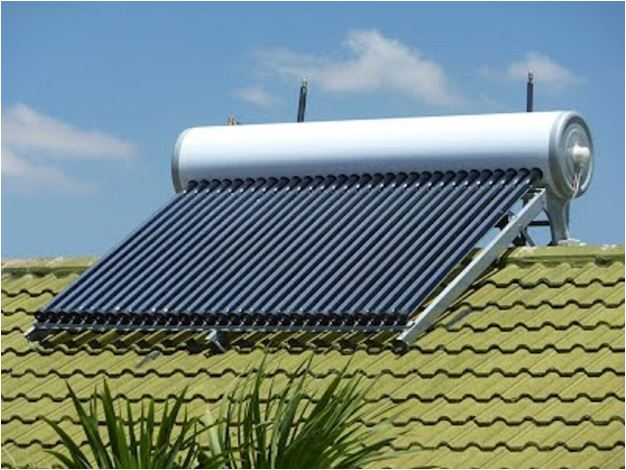The efficient conversion of solar energy into thermal energy using a solar water heating system has been demonstrated.This article discusses the thermal efficiency of solar water heaters in detail.
As a result of this essay, you’ll learn how a solar-powered water heater can potentially save you money and do well for the environment. Using the data presented here, you may decide whether or not a solar power system is a wise investment for your household’s hot water requirements.
Solar water heaters are another name for household solar heating systems, are an efficient way to heat your home’s water without breaking the bank. Sunlight is the only source of energy needed to run them, and it’s free!
Every day, you require hot water in your home to do things like a shower, wash dishes, and do laundry.Before you put one on your house, here’s what you need to understand, including whether or not you should.
Table of Contents
How do they work?
Water or heat-exchanging liquid is exposed to the sun’s rays and then supplied into your house for domestic use by a solar water heater. All solar water heaters have a tank for storing hot water and a collector for collecting heat from the sun.
Water or a heat exchange is passed through a succession of collectors, tanks, tubes, or flat plates through which the sun’s heat is absorbed. Depending on the final destination, the fluid is then pumped to either a heat exchanger or a water tank.
Preheating water for traditional water heaters is the most popular solar water heating equipment usage in the house. In contrast, a few solar water heaters do not require a tank to heat and store water, allowing for entirely solar-powered hot water.
Solar Water Heater Types
Passive and active solar water heaters are the two main types. The primary distinction between active and passive systems is the reliance on circulating pumps against gravity when moving water. Antifreeze can be used as a heat transfer fluid in dynamic systems, requiring power to operate.
The primary passive solar collectors heat water in tubes, which are then fed to a faucet when it is needed. This is called a passive collector. There are two types of active sun collectors: antifreeze-heated heat exchangers that provide heated potable water for preservation and domestic use, and solar collectors that consume heated potable water.
Purchase of a solar water heater
Do the following before you build or buy a solar water heating system:
Find out how much a solar water heater will cost and how much energy it will save.
Assess the solar resource on your property.
Calculate the ideal system size.
Investigate local ordinances, bylaws, and other governing documents.
Drawbacks of solar water heaters
The major drawback of a solar thermal system is that it cannot be used on foggy, rainy, or otherwise overcast, nor can it be used at night. A typical auxiliary heater can address this drawback, but it is one that all solar technologies have in common.
Conclusion
Installing the solar water heater will reduce your water heating expenditures.A water heater powered by the sun is an excellent alternative for practically any application when used with other renewable energy sources.

